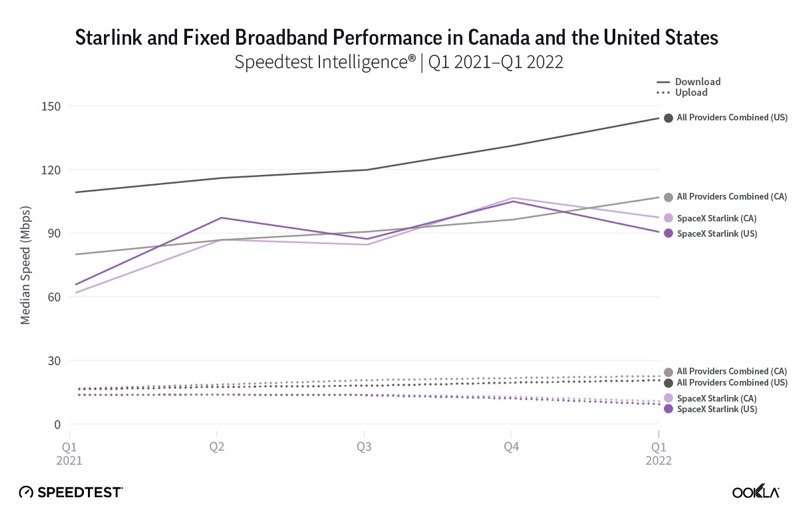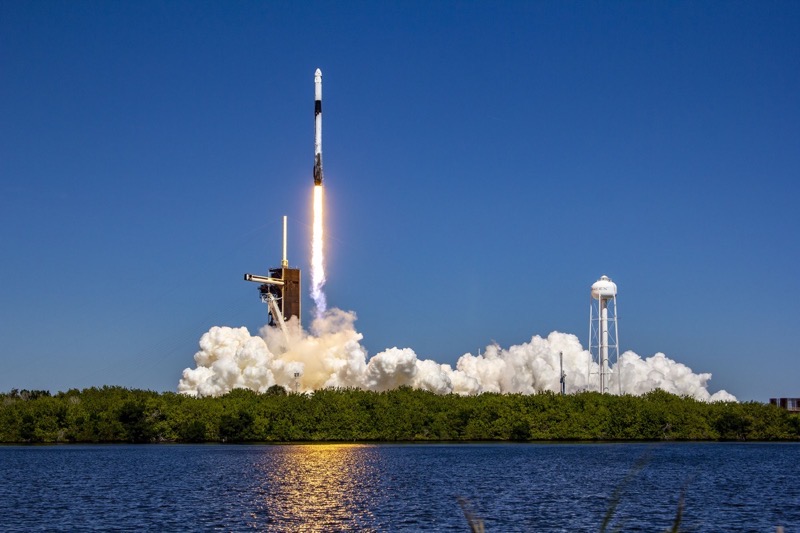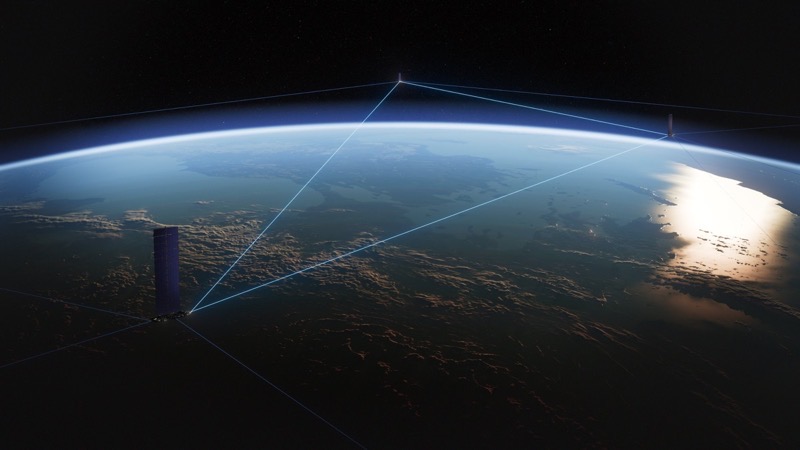
SpaceX Starlink Speeds Have Increased 38% in the U.S., 58% in Canada Over Past Year

Internet analysis firm Ookla says it has analyzed its Speedtest Intelligence data to show how SpaceX’s Starlink internet performance has changed over the past year in the United States, Canada and beyond, releasing its latest report on Tuesday.
According to the report emailed to Tesla North, Ookla says Starlink speeds increased 38% in the U.S. over the past year, and nearly 58% in Canada. While median download speeds for Starlink “dramatically increased” from Q1 2021 to Q1 2022, Ookla points out that speeds from fixed broadband providers similarly saw combined speed jumps as well.
Starlink median download speeds in the U.S. went from 65.72 Mbps download in Q1 2021 to 90.55 Mbps in Q1 2022, a 38% increase.
For Canada, Ookla data shows speeds went from 61.84 Mbps to 97.40 Mbps during the same period.
While download speeds increased, Ookla says Starlink upload speeds decreased year-over-year. In the U.S., upload speeds dropped 33% from 16.29 Mbps down to 9.33 Mbps, and 23% in Canada (16.69 Mbps to 10.70 Mbps).
As for median latency, it “marginally increased” in both the U.S. and Canada and changes were negligible.
Starlink also was crowned the fastest satellite provider in North America for its speeds in Mexico, with a median download speed of 105.91, followed by Canada at 97.40 Mbps and the U.S. at 90.55 Mbps. Starlink download speeds were faster than Mexico’s fixed broadband download speeds.
Out of satellite internet providers in Europe, Starlink was the fastest in Lithuania, but also hitting 100+ Mbps in nearly every country the service was commercially available, says Ookla. Starlink was also the fastest satellite provider in Chile in South America and similarly in Australia for Oceania.
“As we’ve continued to see over the past year, Starlink’s low-earth orbit satellites (LEOs) provide a life-changing service for consumers in rural areas that might not otherwise have access to high-speed internet,” concluded Ookla.

